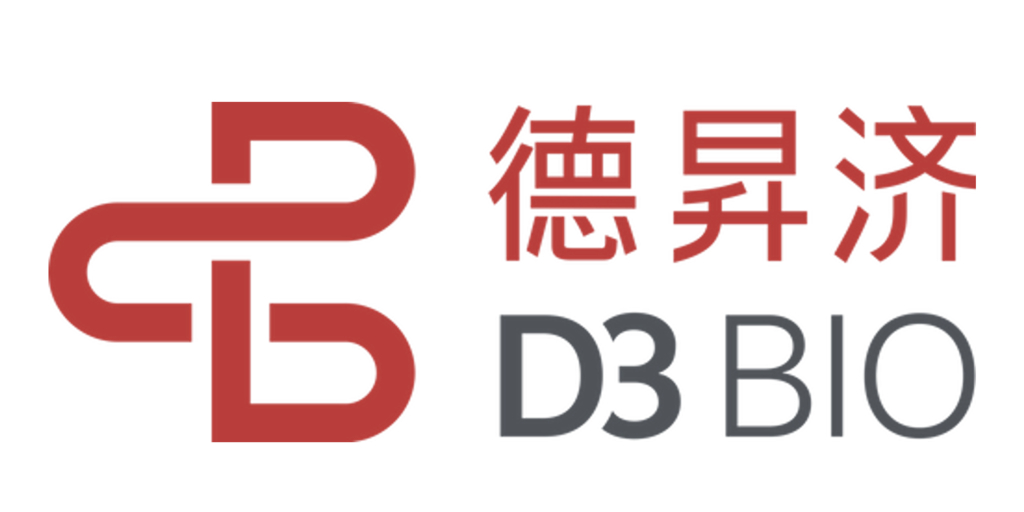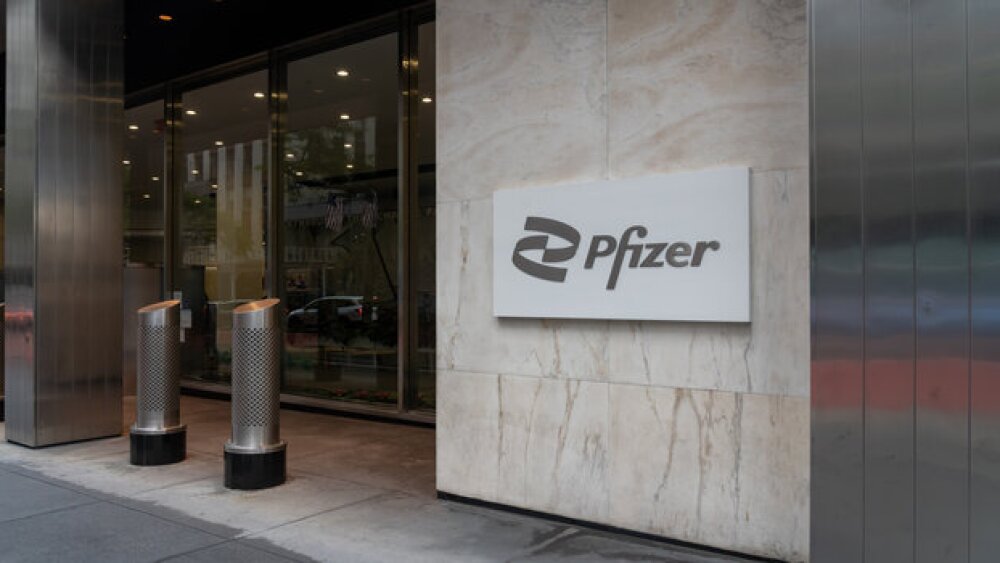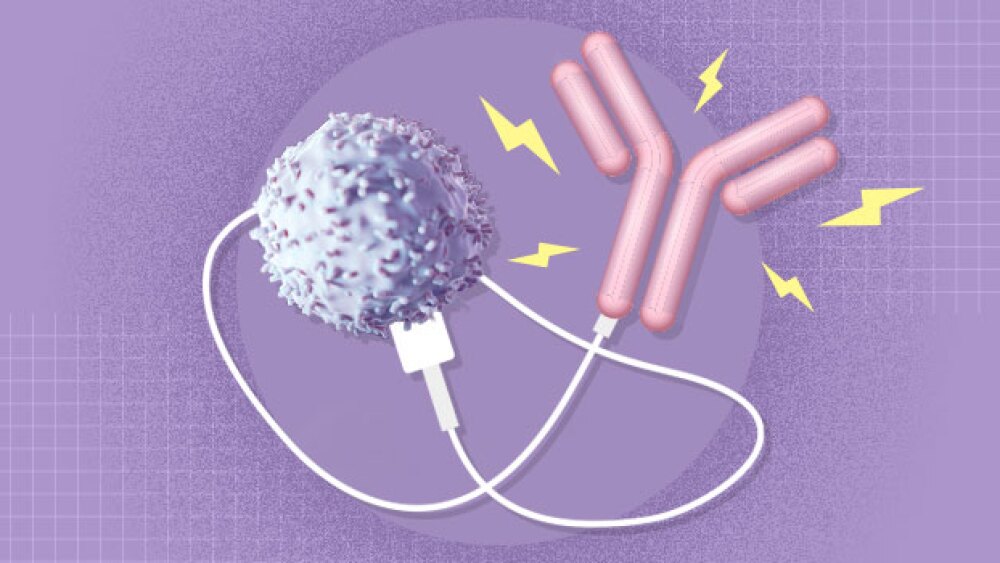Study Published CANCER DISCOVERY
- D3S-001 Demonstrated Significantly Improved Covalency and Rapid Target Engagement Not Affected by Growth Factors, Potentially Depleting Cellular Active KRAS in Multiple Preclinical Models
- Overcame KRAS G12C Inhibitor Resistance in Patient Cancer Cell Model, Achieved Durable Tumor Regression in Brain mNSCLC Model
- Correlates to Anti-tumor Activity Preclinically, Clinically Meaningful Response Observed in Phase 1 Trial in KRAS G12C-mediated cancers
- This Next-Generation and Differentiated KRAS G12C Inhibitor Could Lead to Better Clinical Efficiency
SHANGHAI--(BUSINESS WIRE)--#CancerDiscovery--D3 Bio, a global clinical stage biotechnology company focusing on discovery, development, and registration of innovative cancer drugs, announced that its lead compound, a next-generation KRAS G12C inhibitor, D3S-001, demonstrated rapid target engagement, overcame the limiting factors of nucleotide cycling and RTK activation, and showed robust preclinical and clinical activities in KRAS G12C-mediated cancers, in a study published in Cancer Discovery.
In a paper titled, “A KRAS G12C Inhibitor with Rapid Target Engagement Kinetics, Overcomes Nucleotide Cycling, and Demonstrates Robust Preclinical and Clinical Activities”, researchers from D3 Bio and its collaborators demonstrated that D3S-001 performed significantly better than other KRAS G12C inhibitors in multiple pre-clinical and clinical studies designed to profile the class of KRAS G12C small molecule inhibitors. Specifically, D3S-001 demonstrated substantially improved covalent potency and better and faster target engagement (TE) kinetics, compared to the approved drugs (sotorasib and adagrasib) in the class. This suggests that D3S-001 has the potential to “lock” KRAS G12C in its inactive (GDP-bound) state more efficiently, possibly resulting in cellular active KRAS depletion in clinically relevant doses. In addition, D3S-001’s high potency and rapid kinetics allow it to block the GDP-to-GTP transition even in the presence of growth factors. In contrast, first-generation G12C inhibitors are less effective in these conditions, which may contribute to their limited clinical efficacy.
In cell line and patient-derived tumor xenograft models across multiple cancer types, D3S-001 demonstrated significantly more robust anti-tumor responses than the other KRAS G12C inhibitors in the study. Importantly, these include a delay in disease progression in tumors that were resistant to an FDA-approved KRAS G12C inhibitor. D3S-001 also exhibited brain penetration properties, resulting in durable intracranial tumor regression in mouse models with brain metastases.
Citing the ongoing D3S-001 Phase 1/2 trial in KRAS G12C-mediated solid tumors, the study noted that durable RECIST responses were observed across all dose cohorts, as well as systemic and intracranial anti-tumor activity in two highlighted patients with non-small cell lung cancer (NSCLC) enrolled in the first dose cohort of this trial.
The researchers conclude that D3S-001 is a next-generation GDP-bound KRAS G12C inhibitor with robust antitumor preclinical activity and promising durable responses in the ongoing clinical trial, which could overcome the limitations of the first-generation drugs.
Separately, in an oral presentation at the ESMO Congress 2024, dose-escalation data from the D3S-001 Phase 1 clinical trial in 42 patients of locally advanced or metastatic KRAS G12C-mutated cancers with prior systemic treatments was presented. The presenter and trial investigator, Byoung Chul Cho, MD, PhD, Professor in the Division of Medical Oncology at Yonsei Cancer Center, Yonsei University College of Medicine and Chief of Lung Cancer Center at Yonsei Cancer Center, Yonsei University College of Medicine, highlighted that D3S-001 functionally abolishes the KRAS G12C transition from GDP-bound (inactive) state to the GTP-bound (active) state, depleting cellular active KRAS, even in the presence of growth factor stimulation. Results from the Phase 1a dose-escalation study (42 patients in total) showed favorable tolerability across different dose levels, with no maximum-tolerated dose reached. In addition, D3S-001 demonstrated consistent and promising efficacy in the G12C-inhibitor naïve population, with a confirmed overall response rate (ORR) of 73.5% across tumor types. Researchers also observed brain tumor shrinkage in patients with brain metastases and a rapid, sustained reduction of mutant allele frequency (MAF), which measures mutated genes, in circulating tumor cell DNA (ctDNA) as early as Day 8 post-treatment. Expansion study cohorts are ongoing and focus on monotherapy and combination therapy regimens in non-small cell lung cancer (NSCLC), colorectal cancer (CRC) and pancreatic ductal adenocarcinoma (PDAC).
“While promising, the first generation of KRAS G12C inhibitor class has exhibited limited durability in the clinic, which could be addressed by a more efficient mode of action,” said Dr. Cho. “This paper, demonstrating that D3S-001 has a more robust covalent potency and rapid target engagement kinetics, unaffected by RTK activation, unveils a novel mode of action that correlates with pre-clinical anti-tumor activity and promising Phase 1 clinical results. Furthermore, the study shows, for the first time, that GDP-bound KRAS G12C inhibitors can deplete cellular-active KRAS as efficiently the GTP-bound inhibitor class, suggesting that D3S-001 could address the issues that have challenged this class of drugs.”
“Believing that a next-generation KRAS-G12C inhibitor with significantly improved target inhibition efficiency could become the backbone of a new standard of care for cancers carrying KRAS G12C mutations and provide profound clinical advantages, we selected D3S-001 for its superior covalent potency and differentiated target engagement kinetics,” said George Chen, MD, Founder, Chairman and CEO, D3 Bio. “This study validates our strategy of discovering a next-generation and differentiated G12C inhibitor with rapid target engagement to deliver more efficacious clinical activity. At the ESMO 2024 Congress, we presented Phase 1 data from 42 patients, showing a consistent and clinically meaningful response across all cancer types. We are excited with the progress of D3S-001, a potential best-in-class compound, and expect to report topline Phase 2 data in 2025.”
About D3S-001
D3S-001 is a next-generation KRAS G12C inhibitor designed to enhance KRAS G12C target engagement. In preclinical investigations, D3S-001 has demonstrated high covalent potency, the ability to rapidly and completely engage the KRAS G12C target at clinically relevant doses and CNS penetration properties. D3S-001 is currently in a Phase 2 global clinical trial in patients with advanced solid tumors harboring a KRAS G12C mutation, including non-small cell lung cancer (NSCLC), colorectal cancer (CRC) and other tumor types. For detailed information about D3S-001, please refer to the highlighted Research Article published at the 2024 September issue of Cancer Discovery, titled “D3S-001, A KRAS G12C Inhibitor with Rapid Target Engagement Kinetics, Overcomes Nucleotide Cycling, and Demonstrates Robust Preclinical and Clinical Activities” (Cancer Discovery 1 September 2024; 14 (9): 1675–1698. https://doi.org/10.1158/2159-8290.CD-24-0006). D3S-001 has received US FDA Orphan Drug Designation (ODD) for the treatment of pancreatic cancer and Fast Track Designation (FTD) for the treatment of late-line non-small cell lung cancer (NSCLC) and colorectal cancer (CRC).
For more on the D3S-001 clinical trial, please go to: https://clinicaltrials.gov/study/NCT05410145?intr=D3S-001&rank=1
About D3 Bio
D3 Bio is a global biotechnology company that focuses on the discovery, development, and registration of new medicines in oncology and immunology. The D3 Bio discovery and development platform leverages our proprietary clinical insight and biomarker strategy to guide discovery and development for the creation of novel and clinically meaningful new therapies for patients in need.
D3 Bio is funded by Boyu Capital, Matrix Partners China, HongShan China, Temasek, WuXi AppTec’s Corporate Venture Fund, and Medicxi.
Contacts
Media:
Rui Liu
Head, Corporate Affairs
bd@d3bio.com






